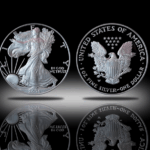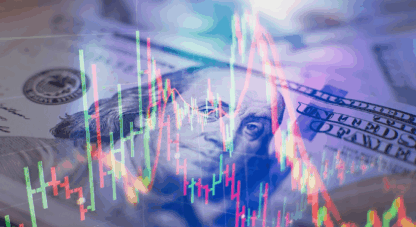The week’s discussions across publications converge on themes of economic resilience, global instability, and shifting financial paradigms. Dr. Peter Zhao highlights the interplay of geopolitics and values, warning of escalating flashpoints like China-Taiwan and critiquing China’s debt-laden economic model. He contrasts America’s market-driven dynamism with structural challenges in Europe and China, stressing that leadership and trust are pivotal in navigating demographic and economic headwinds. Meanwhile, Doug dissects the Fed’s monetary stance, questioning whether policies are truly restrictive in an economy buoyed by strong GDP growth, record corporate profits, and persistent inflation. Across the globe, credit expansion in China and Japan’s debt issues add complexity to an already precarious financial landscape.
Other noteworthy themes include the potential unraveling of the petrodollar system. Morgan explores the implications of U.S. sanctions on Russian oil buyers, which could accelerate a gold-based trade model, as BRICS nations pivot away from dollar dominance. Precious metals also take center stage, with gold, silver, and platinum rallying amid market uncertainty and dollar weakness, underscoring their role as financial anchors in turbulent times. Across these varied discussions, a clear undercurrent emerges: the global economy is at an inflection point, shaped by seismic shifts in policy, geopolitics, and monetary frameworks.
Key Takeaways:
- Principles matter in government
- Inflation still matters
- Is the petrodollar an endangered species?
- Metals continue to show strength
The McAlvany Weekly Commentary: Dr. Peter Zhao: The Importance Of Virtue In Economics
Renowned economist Dr. Peter Zhao joins David this week as they dive into a sweeping discussion of global geopolitics, economics, and the intersection of values and governance. Dr. Zhao, speaking via translator, identifies four global flashpoints—three already ignited (Ukraine-Russia, Middle East, and India-Pakistan)—and warns that a China-Taiwan conflict could mark both a geopolitical disaster and a test of global virtue. He traces China’s economic trajectory from low-cost growth to post-2008 Keynesian overreach, now unraveling into a debt-fueled crisis on par with the U.S. Great Depression. Zhao argues that China’s path forward hinges on political reform and restoring trust with the West, while dismissing consumption-driven growth as incompatible with China’s historical structure. On U.S. soil, he links economic resilience to deep-rooted values, contrasting America’s faith-based market dynamism with Europe’s secular drift and China’s nationalism. The dialogue closes with a sobering reflection on China’s demographic collapse and a call for transformational leadership. The hosts leave listeners with much to ponder in a world grappling with seismic shifts.
Credit Bubble Bulletin: Not Restrictive
Doug’s latest analysis dives into Fed Governor Waller’s assertion that U.S. monetary policy is anything but restrictive, despite inflation pressures and tariffs creating ripple effects across markets. Waller’s call for a rate cut hinges on the argument that tariffs are temporary price-level spikes, but Doug questions whether the current policy stance—1.25 to 1.50 percentage points above neutral—truly “fits the bill” of being overly tight. With the Atlanta Fed forecasting Q3 GDP growth at 2.4% and unemployment at a historic 4.1%, the economy shows resilience, yet inflation’s persistent rise, particularly in tariff-affected goods like appliances and household furnishings, hints at deeper structural issues. Meanwhile, financial conditions seem anything but constrained, with leveraged loans hitting their busiest week since January and major banks raking in record profits. As Doug notes, there’s little evidence that the Fed’s current policy is cramping market exuberance. From China’s record credit growth to Japan’s looming debt concerns, global financial imbalances add further drama to an already volatile stage. Doug reminds us that dismissing inflation risks or declaring policy “not restrictive” may be wishful thinking in a world of ballooning credit and precarious stability.
Hard Asset Insights: Letting the Thesis Play Out
Morgan dives deep into the markets this week, analyzing inflation, geopolitics, and the shifting global monetary order. While June’s inflation data showed a mixed bag—headline CPI climbing to 2.7% year-over-year and core CPI hitting 2.9%—Morgan notes that rising prices are likely just the beginning. However, the real story of the week, in Morgan’s view, was President Trump’s announcement of secondary sanctions on Russian oil buyers, a move that threatens to accelerate the demise of the petrodollar system in favor of a gold-centric global trade model. With Russia’s oil exports accounting for 11% of global supply and sanctions targeting key players like China and India, this could lead to a seismic shift in how global oil trade is settled. Morgan highlights the growing gold-to-oil and gold-to-Treasuries ratios as key indicators of this transition. Emerging markets, especially BRICS nations, are already leading the charge, with central bank gold purchases surpassing 1,000 tonnes annually for four consecutive years. Even if sanctions don’t materialize, the threat alone may push the dollar-centric system further toward obsolescence. Weekly market highlights include modest gains in equities and the dollar, mixed energy performance, and a slight dip in precious metals. Morgan leaves us pondering: is the petrodollar system truly heading the way of the dodo?
Golden Rule Radio: Metals Rally Into Summer
Miles and Rob dig into the week’s standout story: the rally in precious metals, which stole the spotlight from a largely stagnant S&P 500. They kick things off with gold’s resilience, noting its steady climb amid global uncertainty, while silver and platinum showed their mettle with significant gains, reflecting renewed investor interest in white metals. Rob highlights the dollar’s continued weakness, which played a key role in bolstering commodities, while Miles underscores the importance of maintaining a diversified portfolio in volatile times. The duo touches on the broader economic landscape, including mounting debt concerns and the potential for market liquidity issues in the months ahead. With sharp analysis and a steady dose of historical context, they remind listeners that precious metals remain an anchor in stormy financial seas. As they wrap up, both emphasize the importance of staying informed and prepared, leaving listeners with actionable insights for navigating uncertain markets.















